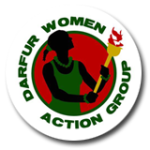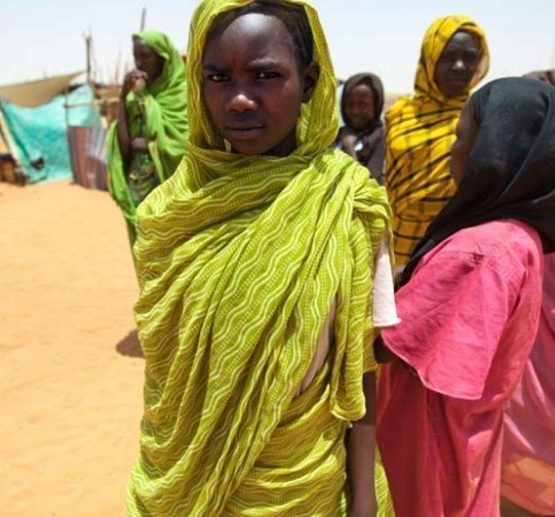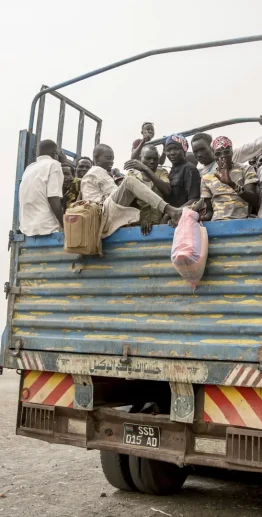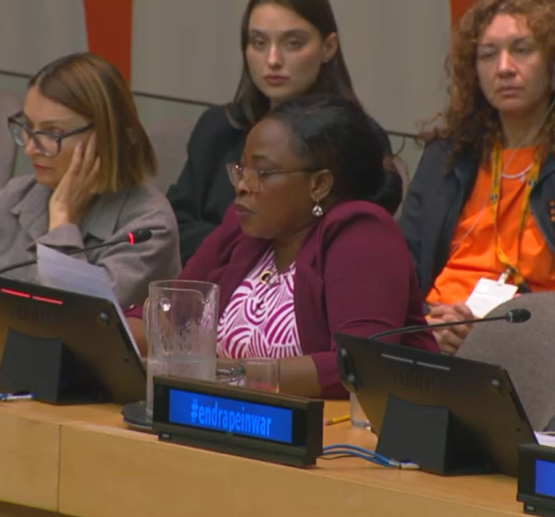Darfur Women Action Group (DWAG) is gravely concerned about the irresponsible decision by the UNSC and the interim government of Sudan to withdraw UNAMID by December 31, 2020. Alarmingly, a new UN mission (UNITAMS) has been proposed to be deployed to the capital Khartoum, leaving behind millions of vulnerable genocide victims in the internally displaced and refugee camps who face attacks and lack alternative civilian protection measures in place.
On Sunday, October 25, the UN announced that the United Nations-African Union Mission in Darfur (UNAMID) will conclude December 31, as scheduled. This development was released at the beginning of four-days of discussion between the UN Under-Secretary-General for Peace Operations, Jean-Pierre Lacrois, the African Union Commissioner for Peace and Security, Smail Chergui, regional leaders, and representatives from Sudan’s interim government.
In June, the United Nations Security Council unanimously adopted Resolution 2524, which created the United Nations Integrated Transition Assistance Mission in Sudan (UNITAMS) for a twelve month period. This new political mission, fully supported by Prime Minister Abdallah Hamdok, will provide Sudan’s transitional government with technical assistance regarding “peacebuilding, civilian protection and rule of law.” Notably absent from the mission are military components to protect civilian populations from violence. In the separate Resolution 2525, the UN extended the mandate of UNAMID until December 31, after which it will be dissolved.
“I fled Darfur at the height of the genocide, in 2005, and it breaks my heart to accept that the world will turn away when there are so many displaced people remaining in the very places where I left them,” said Niemat Ahmadi, DWAG Founder and President, following the UNSC announcement. “For Hamdok, in the comfort of Khartoum, the capital, it may be tempting to rhetorically be seen as a strong, sovereign leader who does not accept international forces in his territory. This approach, however, will sacrifice Darfuri lives for his personal and political pride.”
The hybrid peacekeeping force of UNAMID, first deployed in Sudan in 2008, is mandated to protect civilians from physical conflicts and deliver humanitarian assistance among other responsibilities. Over the years, UNAMID has received criticism from Darfuri civilians and humanitarian groups for its failure to adequately protect people from ongoing violent attacks. Yet in many instances, UN Peacekeepers have played an integral role providing people with limited patrols, educating communities on gender-based violence, and facilitating humanitarian assistance.
The transitional government of Sudan has repeatedly failed to protect the civilians of Darfur from ongoing deadly attacks, and therefore it cannot be tasked with the peacekeeping process. Recent cases demonstrate that the Janjaweed militia and the Rapid Support Forces, government paramilitaries, have continued to terrorize civilians of Darfur. Sudan cannot achieve comprehensive peace if known perpetrators of genocide in Darfur remain at large, and perhaps most alarmingly, in positions of power.
Despite the recent signing of a peace agreement, attacks against civilians in Darfur and other affected regions have not ceased. Millions of Darfuris displaced 18 years ago have yet to return to their homes, the Janjaweed are still in full force wreaking havoc in Darfur, and the perpetrators of the most serious crimes have yet to face trial. While vowing to provide civilian defense, the transitional government of Sudan is too incapable and unwilling to provide this protection. Their forces are not neutral and are mostly responsible for the crimes committed in Darfur.
The news that UNAMID will officially be exiting Sudan this year without alternative civilian protection in place is disastrous for the people of Darfur. DWAG again urges the international community to establish an independent and effective peacekeeping force that will last throughout Sudan’s transitional period. The people of Darfur, women especially, require urgent action to safeguard their wellbeing. We call on our supporters to continue speaking out against violence in Darfur and to demand that all perpetrators of crimes against humanity and genocide in Darfur be brought to justice.




